Building sub-national government
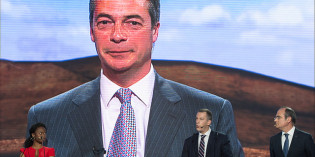
20 things we learned about democracy in June 2014
June 2014 proved to be another eventful month for democracy, with revelations about security, surveillance, Scottish independence, and the European Parliament and local elections. Here, Sean Kippin rounds up 20 interesting nuggets of information which made themselves known this month. Similar Posts20 things we learned about democracy in January 2015Interview part 2: Tim Bale on Ed […]

Scotland’s independence referendum is spurring the desire for political devolution in England
Arianna Giovannini and Joanie Willett explore the uneven path of English regionalism, focusing on two cases: the North East and Cornwall, during and after the New Labour government. Scotland’s referendum has reminded people that there are alternatives, and that regional devolution is a possible solution to a London-centric problem. England’s regional identities and inequalities are only going to become […]
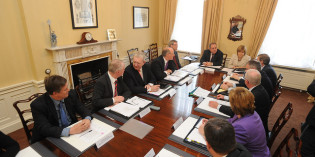
Debating Scotland’s transition costs: A response to Iain McLean’s critique
Iain McLean’s welcome comments can help us to see more clearly where some real uncertainties lie, says Patrick Dunleavy. Underneath the flim-flam of debate, the scope of debate about transition costs has focused down. Similar PostsThe best of Democratic Audit’s 2014 coverage of Scotland’s democratic futureThe Smith Commission Report is short, but packs a big punchWhat will it […]
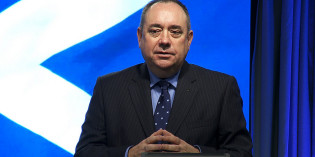
What will it really cost to set up an independent Scotland? A critique of Patrick Dunleavy’s report
Iain McLean comments on a report by Patrick Dunleavy that claims that, in the event of a Yes vote in the upcoming referendum, there would be immediate set-up costs of only £200 million in stark contrast to the UK government’s own estimate of £2.7 billion. Iain argues that the number is likely to be in the area of £1.5 to […]
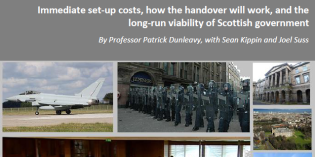
How costly would it be for Scotland to transition to independence?
With the referendum on Scotland’s future fast approaching, Patrick Dunleavy examines how costly it would be to set up an independent Scottish state. Coinciding with an op-ed written in The Sunday Post and re-posted on the LSE Politics and Policy Blog, this article outlines the main points of a longer report which can be downloaded here. Similar PostsHow democratic are the UK’s two […]
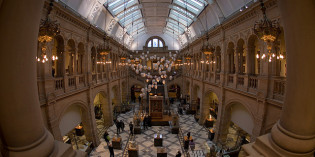
Scotland would benefit from adopting a more ambitious approach to its constitutional future
The Scottish Government this week released the first draft of an interim constitution for an independent Scotland, as well as details about the nature of the Constitutional Convention that would come together in order to write a final document. Alan Renwick argues that though some elements of this are encouraging, a bolder approach – particularly […]
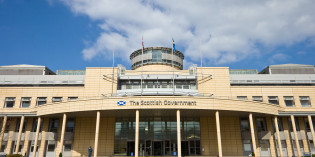
Scotland’s draft interim constitution: limiting or liberating?
In part two of our piece in which experts give their views on the Scottish Government’s draft interim constitution, we hear from Katie Boyle of the University of Limerick, Stirling University’s Ben Saunders, and Glasgow University’s Thomas Lundberg. They weigh up whether the document is up to the task of taking Scotland through the difficult transition to independence […]
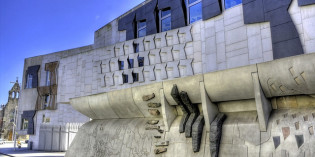
Scotland’s draft interim constitution: clear-sighted and sensible, or an SNP power-play?
The Scottish Government recently published The Scottish Independence Bill: A Consultation on an Interim Constitution for Scotland, the document which would form the basis of the constitutional arrangements for Scotland in the event of a ‘Yes’ vote in the forthcoming independence referendum. Democratic Audit asked expert constitutional thinkers to give their views on whether the […]
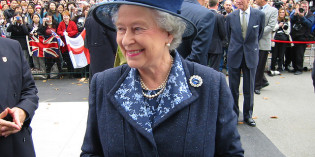
Why does the England football manager insist his players sing the national anthem at the World Cup?
Democratic Audit this week featured responses from democracy experts to the news that the England football manager Roy Hodgson will force players to sing the national anthem at the forthcoming World Cup. In this post, Gabriella Elgenius reflects on the history and meanings of national anthems and the particular controversies surrounding God Save the Queen. […]
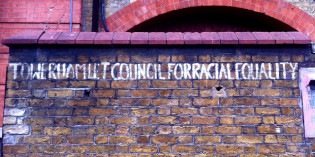
Events in the local elections in Tower Hamlets have provoked national interest and display worrying signs of division
The Tower Hamlets political scene has long been known for its unique flavour and numerous idiosyncrasies. May 22nd’s Mayoral election was one of the most interesting chapters yet, with the incumbent Lutfur Rahman winning re-election in controversial circumstances. Here, the former Leader of Tower Hamlets Council Michael Keith, reflects on what the election means for […]


 Democratic Audit's core funding is provided by the Joseph Rowntree Charitable Trust. Additional funding is provided by the London School of Economics.
Democratic Audit's core funding is provided by the Joseph Rowntree Charitable Trust. Additional funding is provided by the London School of Economics.